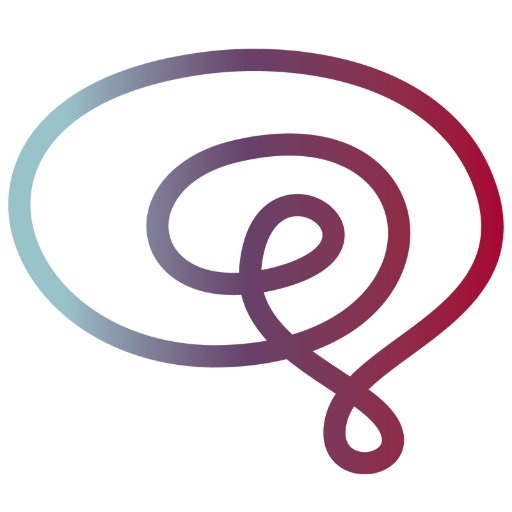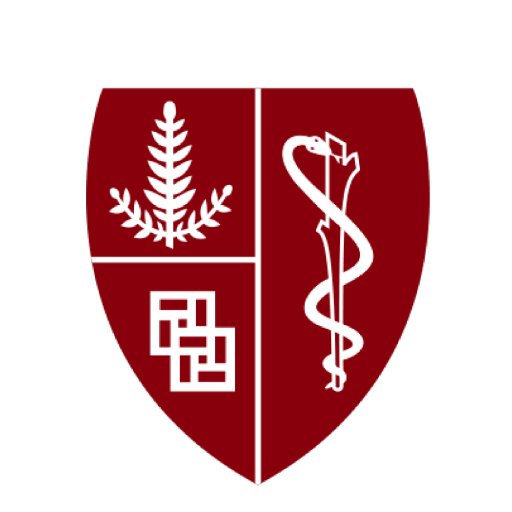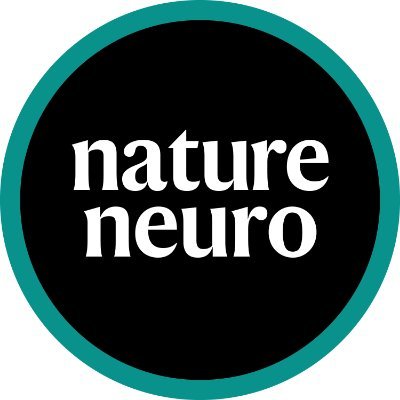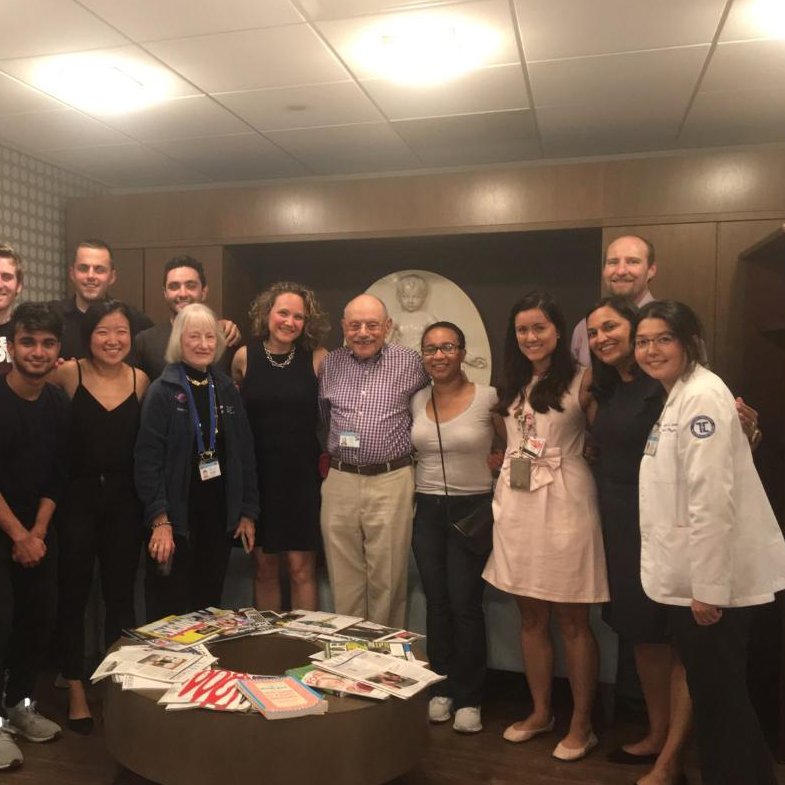
Wu Tsai Neurosciences Institute
@StanfordBrain
Followers
11K
Following
9K
Media
1K
Statuses
5K
Official feed of @Stanford Wu Tsai Neurosciences Institute. Unlocking the mysteries of brain and behavior through cross-disciplinary research.
Stanford University
Joined October 2013
Clearance of intracranial debris by ultrasound reduces inflammation and improves outcomes in hemorrhagic stroke models - @StanfordRad
https://t.co/BludN4qtBd
1
10
33
“We’re making a helmet people can wear that delivers ultrasound to the brain, and we plan to initiate clinical testing of this protocol in the next few months,” said Raag Airan. With Knight Initiative support, his lab plans to test it on people soon. 🔗 https://t.co/AyFXhn6rem
0
3
6
Founded by psychiatrist Anna Lembke when few physicians knew how to help patients with addiction, a pioneering Stanford Medicine fellowship program continues a legacy of preparing new generations of addiction specialists. https://t.co/6tKFL72Flf
1
9
31
Here at #NAN2025 it was such a delight to once again learn from my former professor, Dr. Brian Knutson, who taught one of my favorite college classes. His work in neuroeconomics is fascinating. Makes me wish I could spend another 4 years on the Farm! @StanfordBrain @NANneuropsych
0
1
1
Microscopic fibers in tissue are critical for our understanding of disease, but they have been difficult to study. Researchers at Stanford Medicine have come up with an easy way to visualize them. https://t.co/Sy6AbM0Wv9
1
15
34
Fantastic talks at yesterday's seminar! Ted Wilson - Unveiling early Alzheimer’s: biomarkers and breakthroughs on the path to brain resilience. Raag Airan - Ultrasonic debris clearance for improving neurofluid flow and decreasing neuroinflammation.
0
2
6
We welcome 3 Stanford Interdisciplinary Graduate Fellows (SIGFs)—Sarah Zou, Nick Manfred, and Pengli Wang! Projects include efforts to decode traumatic brain injury (TBI), map brain-body communication, and find treatments for rare childhood diseases. 🔗 https://t.co/9yx9HJBjH2
0
4
11
I’m very honored to be recognized by the Sammy Kuo Neuroscience Award. Grateful to my mentor @LMWilliams_PhD, collaborators, and lab @Stanford_PMHW for the support that made this possible. Excited to continue advancing precision mental health research.
@karagm2009 @MargolisLabNYU @NYUPainResearch @nyuniversity @NYUDental @NYULH_DeptofMed @Westlake_Uni @Tyfic_Gh @dcardozopinto One Sammy Kuo honorable mention in the postdoc category goes to Xue Zhang @warmxue (@LMWilliams_PhD Lab) for her paper "Adaptive cognitive control circuit changes associated with problem-solving ability and depression symptom outcomes over 24 months." https://t.co/gDqcm7UN8Y
0
1
4
How can brain activity predict stock prices or viral videos? In today’s podcast, Stanford neuroeconomist Brian Knutson explores how brain signals shape choice, risk, and attention—bridging neuroscience, psychology, and economics. Listen now: https://t.co/kGQurPD1GA
0
2
8
A pair of papers on how TDP-43 loss in ALS/FTD causes changes in mRNA polyadenylation This one from Aaron Gitler's group @StanfordMed @StanfordBrain @BrainResilience @koryant
https://t.co/XIMzL5rcw8
nature.com
Nature Neuroscience - Zeng et al. show that TDP-43, known for repressing cryptic exon usage in frontotemporal dementia/amyotrophic lateral sclerosis, also controls alternative polyadenylation,...
1
3
15
Thank you for hosting me at such an incredible event @StanfordBrain !! @MargolisLabNYU @NYUPainResearch @nyuniversity @nyulangone
@karagm2009 @MargolisLabNYU @NYUPainResearch @nyuniversity @NYUDental @NYULH_DeptofMed 95% of the body’s serotonin is in the gut, not the brain. Margolis' research shows that targeting SSRI-like effects to the gut epithelium can produce anti-anxiety, anti-depression and GI effects in mice. She hopes more targeted approaches can improve care and reduce side effects.
1
2
21
Congratulations @StanfordBrain on a phenomenal #gutbrain symposium. Thank you for the invitation and looking forward to the collaborations that will be ignited by bringing all of these brilliant minds together
The 12th Annual Neurosciences Symposium is here! We're exploring the dynamic interplay between the brain, gut, and body with leading researchers from Stanford and beyond.
0
2
9
Thanks to @StanfordBrain for this recognition!
@karagm2009 @MargolisLabNYU @NYUPainResearch @nyuniversity @NYUDental @NYULH_DeptofMed @Westlake_Uni @Tyfic_Gh The graduate paper of the year goes to Daniel Cardozo Pinto @dcardozopinto of the Malenka Lab for his paper "Opponent control of reinforcement by striatal dopamine and serotonin." Read the paper here: https://t.co/4LtnloMGM8
2
1
27
@karagm2009 @MargolisLabNYU @NYUPainResearch @nyuniversity @NYUDental @NYULH_DeptofMed @Westlake_Uni @Tyfic_Gh @dcardozopinto @warmxue @LMWilliams_PhD @Sergiu_P_Pasca @stanleyqilab @Xuchen__Zhang @MrThinkingless @gutbrains @DukeU @UCLAHealth @pddoc @Stanford_Neuro @LindaNguyenMD @Stanford_GI @bioe_stanford @StanfordEng @StanfordNsurg @StanfordMed @StanfordDeptMed @Stanford Our director, Kang Shen, closes the symposium by reflecting on insights into gut–brain and brain–body connections, recognizing the work of our community, and sharing optimism for future breakthroughs as this field continues to accelerate. Thanks to all who joined us!
0
3
12
@karagm2009 @MargolisLabNYU @NYUPainResearch @nyuniversity @NYUDental @NYULH_DeptofMed @Westlake_Uni @Tyfic_Gh @dcardozopinto @warmxue @LMWilliams_PhD @Sergiu_P_Pasca @stanleyqilab @Xuchen__Zhang @MrThinkingless @gutbrains @DukeU @UCLAHealth @pddoc @Stanford_Neuro @LindaNguyenMD @Stanford_GI @bioe_stanford @StanfordEng @StanfordNsurg @StanfordMed @StanfordDeptMed @Stanford “We suspect the quality of the foods we eat is probably playing a role in mucosal immune dysregulation [we see in GI disorders]. As fancy as we can get [with our technology], sometimes it’s getting back to the basics of food, sleep, and stress.” - Linda Nguyen
1
0
5
@karagm2009 @MargolisLabNYU @NYUPainResearch @nyuniversity @NYUDental @NYULH_DeptofMed @Westlake_Uni @Tyfic_Gh @dcardozopinto @warmxue @LMWilliams_PhD @Sergiu_P_Pasca @stanleyqilab @Xuchen__Zhang @MrThinkingless @gutbrains @DukeU @UCLAHealth @pddoc @Stanford_Neuro @LindaNguyenMD @Stanford_GI @bioe_stanford @StanfordEng @StanfordNsurg @StanfordMed @StanfordDeptMed @Stanford “The place where interventions are going to have the biggest impact on Parkinson’s very well may be in the preclinical / premotor phase when there’s still little pathology in the brain and more going on in the body. But that’s just a hypothesis right now.” - Kathleen Poston
1
0
6
@karagm2009 @MargolisLabNYU @NYUPainResearch @nyuniversity @NYUDental @NYULH_DeptofMed @Westlake_Uni @Tyfic_Gh @dcardozopinto @warmxue @LMWilliams_PhD @Sergiu_P_Pasca @stanleyqilab @Xuchen__Zhang @MrThinkingless @gutbrains @DukeU @UCLAHealth @pddoc @Stanford_Neuro @LindaNguyenMD @Stanford_GI @bioe_stanford @StanfordEng @StanfordNsurg @StanfordMed @StanfordDeptMed @Stanford Evidence is reviving the idea that Parkinson’s disease may begin in the gut for some people. Poston and Nguyen outline what is known so far, and the biomarkers and studies needed to better understand cause vs. effect.
1
2
8
@karagm2009 @MargolisLabNYU @NYUPainResearch @nyuniversity @NYUDental @NYULH_DeptofMed @Westlake_Uni @Tyfic_Gh @dcardozopinto @warmxue @LMWilliams_PhD @Sergiu_P_Pasca @stanleyqilab @Xuchen__Zhang @MrThinkingless @gutbrains @DukeU @UCLAHealth Excited to kick off our fireside chat on the gut–brain axis and other brain–body connections with Kathleen Poston (@pddoc), professor at @Stanford_Neuro, and Linda Nguyen (@LindaNguyenMD), clinical professor at @Stanford_GI——moderated by Stanford bioengineer Todd Coleman.
1
1
4











